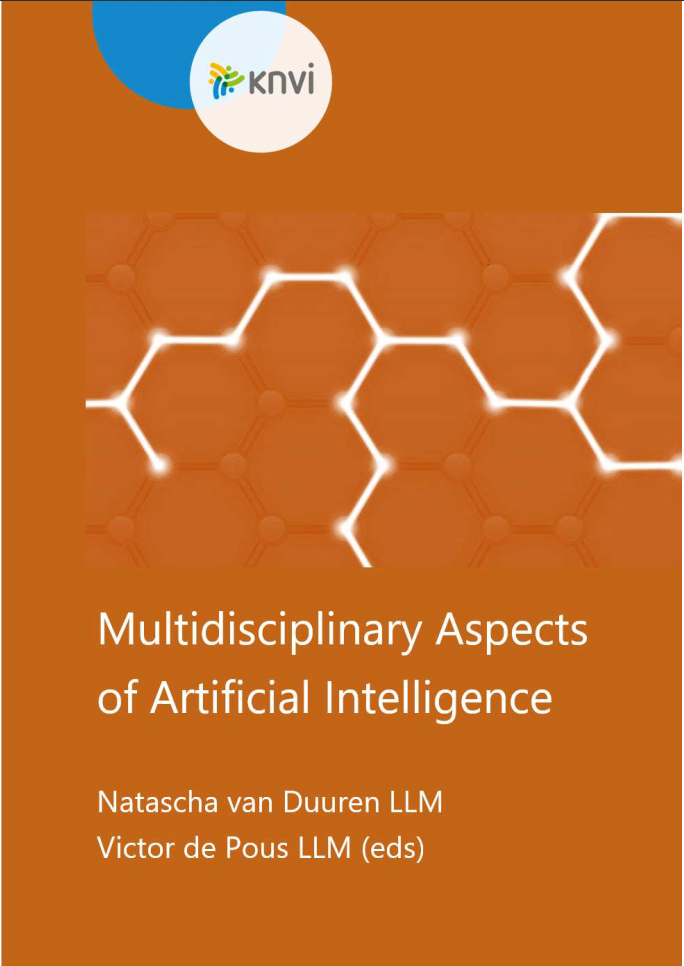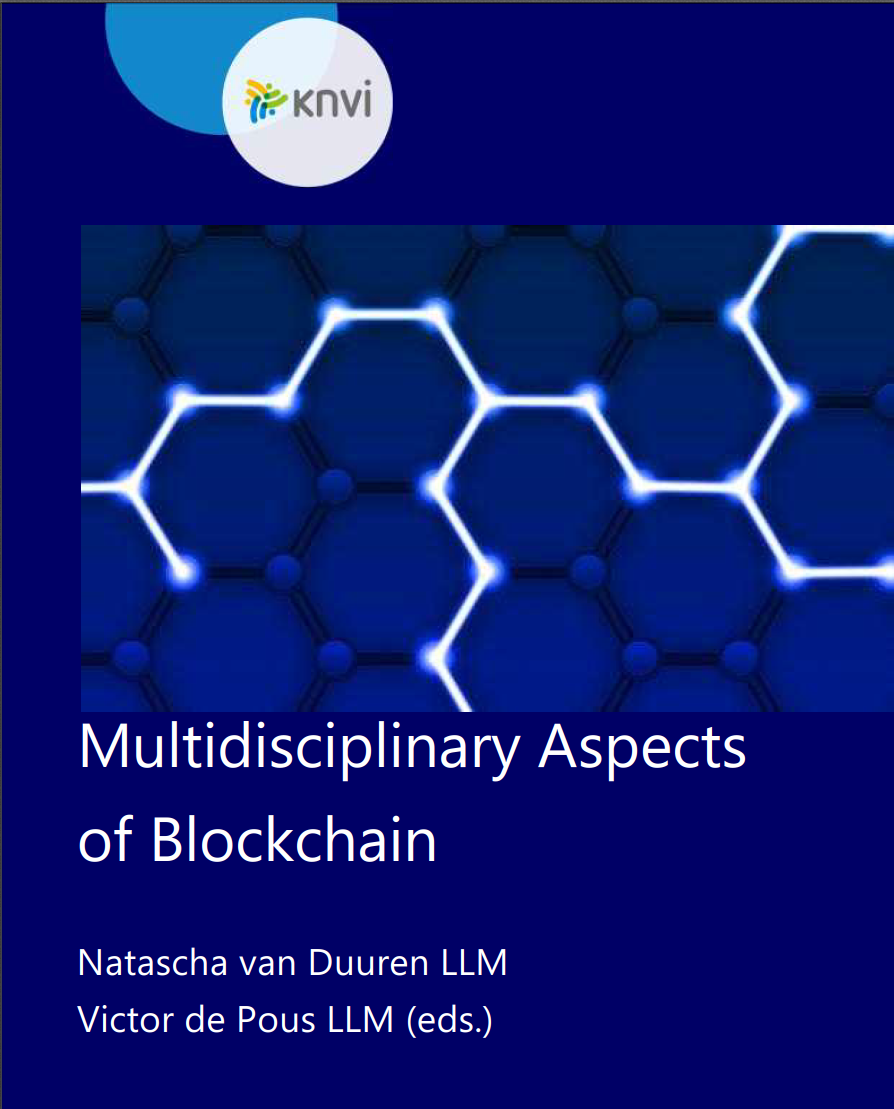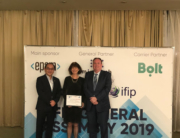New Publications Focus on AI and Blockchain
The Royal Dutch Association of Computer and Information Professionals (Koninklijke Nederlandse Vereniging van Informatieprofessionals, KNVI) has made two unique books available for free under Creative Commons licence.
Multidisciplinary Artificial Intelligence
Edited by Natascha van Duuren & Victor de Pous
While Tesla Motors CEO, Elon Musk, expects increasingly intelligent computers to overtake humans in the foreseeable future, with this trend potentially signalling the end of our civilisation, Alibaba Group Holding co-founder Jack Ma sees the use of artificial intelligence bringing mainly advantages. People will be able to work less, for instance, for the simple reason that systems and robots can perform the labour. Quo vadis?
KNVI knows in any event that, from the perspective of self-learning digital applications, it is precisely the aspects of ‘smart humanity’ that we cannot do without, the central and simultaneously connecting theme of our professional organisation.
In order to support both our colleagues in the field and society as a whole, there needs to be more discussion on ethics. After all, there are hardly any practical impediments to information technology. It is up to the professionals who design the digital technology, work out the algorithms, apply the technology and help make information accessible for others to be more conscious than ever before about the implications of that use. What societal impact can be expected in the specific situation?
Digital professionals have traditionally played a key role in how ICT and data processing develop both in theory and in day-to-day life. This also requires a different outlook on education programmes and competency development. The broad development of competencies has become
essential for the field.
This is in line with the thinking of De Nederlandsche Bank as well, or so we can conclude from its guidelines (25 July 2019) for the use of artificial intelligence in financial services published as a discussion document.
The regulator argues emphatically for the responsible use of AI. One of the guidelines dictates that within a financial undertaking, every individual – from the shop floor through to the board room – must have the appropriate level of skills and be familiar with the advantages and limitations of the AI systems with which they work. In our view, this is an excellent example of ‘smart humanity’.
Multidisciplinary Aspects of Blockchain
Edited by Natascha van Duuren & Victor de Pous
With this special compilation on a fascinating and extremely topical technology, KNVI once again gets the ball rolling across several disciplines. KNVI’s predecessor, the Dutch Computer Society (Nederlands Genootschap voor Informatica, NGI), also did this earlier in relation to data privacy (1982) and on the topic of the vulnerability of the information society in 1987.
Blockchain technology may no longer be a newcomer – the concept stems from 2008 – but that does not mean that we know precisely where and how we should place this technology, while the digital
transformation continues at an ever-increasing rate.
This prompts all sorts of questions. Blockchain in any event involves information technology that can suffer an outage or be intentionally disrupted through a defect in quality. It is also a system in which participants take part, which means certain agreements are necessary. Generally speaking, as is often the case with new technology and its applications, it is still lacking various frameworks.
Blockchain appeals to the imagination and on these grounds alone is, in KNVI’s view, deserving of research. Technologically-inclined colleagues look with interest at the enormous computing power required for public blockchain and, for instance, at the mathematical security concept of this distributed and chronological database, whereby changes take place on the basis of consensus.
Colleagues who want to see information flowing want to know more about the horizontal and vertical applications of blockchains. Ultimately, it is our digital professionals of all types and disciplines who, based on their up-to-date competencies, are able to use blockchain, in both the public and private sector, and always with a sharp eye for the economic, social and ethical requirements.
To access either/both of these books, please visit www.knvi.nl or email depous@live.nl







